"There is a wonder in reading Braille that the sighted will never know: to touch words and have them touch you back."Jim Fiebig
2009 was not very good book year for me and I think I have only read only half as many new books or discover half as many new authors as I did in 2008. I blame the slack on myself, of course, and on my tardiness in updating my Book List after I have emptied it last year. Eff why eye, my Book List is a .txt file I have kept since 2004 in which I record books I am keeping a look out for. It's the closest thing to a purpose in life I have.
Now, I have little faith in the power of New Year resolutions, and have even littler faith that they would be followed through on (least of which by me). Besides, it's already March. Still, I don't think it's way out of the natural order of things to refill my Book List for this year, and so here it is, ten of them - with my preferred covers in case anyone's feeling particularly charitable. I have intentionally left out those titles which are sequels to series I'm already following.
The Alchemy of Stone is a steampunk (some say clockpunk) fantasy novel by Russian-born novelist Ekaterina Sedia which follows the story of Mattie, an emancipated clockwork automaton, who finds herself in the middle of of a conflict between the Mechanics and the Alchemists when she uncovers powerful and dangerous secrets that can completely alter the balance of power in the city of Ayona - which doesn't sit well with Loharri - the abusive Mechanic who built Mattie and still holds the key to her heart (read: the literal key used to wind her up, her being clockwork and everything).
In a far-future, Earth-like planet Arbre, there exist concents; monastic communities which study science instead of God. The story is narrated by Erasmas, a fraa (monk) at the Concent of Saunt Edhar. I've came across this volume several times before but it never really piqued my interest until I read this line in a summary of the book over at tvtropes.org; "...Anathem is really about platonic epistemology, applied and weaponized platonic epistemology." And this quote by Eramas: "Our opponent is an alien starship packed with atomic bombs. We have a protractor." How is that not awesome?
It's a epic fantastical religious allegory about Chauntecleer, a rooster from before the creation of man in command of a company of hens. The titular Dun Cow is God's messenger. 'Nuff said.
An urban fantasy tale of two cities which occupies the same geographical space, and residents from either must dutifully "unsee" (that is, ignore, or fade into the background) the denizens, buildings, and events taking place in the other city - even if they are an inch away. And bloody murder. The story follows Inspector Tyador Borlú of the Extreme Crime Squad of Besźel (one of the two cities) as he investigates the case. Think China Miéville in full hard-boiled detective story mode. I have become a big fan of Miéville's works after reading The Scar a couple years ago so I'm basically just grabbing whatever stuff he's churning out. Check this and his other works out if you are planning on never feeling happy ever again. Powerfully depressing stuff, they are.
While not a sequel of Swanwick's incredible The Iron Dragon's Daughter, it's set in the same world. It's about a young man named Will Le Fey after a crippled dragon takes up residence in his town and inside his mind. If it's anything like The Iron Dragon's Daughter, it'll be another super-dark, ultra-gritty elfpunk hike through an industrialised Faerie that will leave me all emo and existential for couple of days. Other characters include, Esme, an immortal child with no memory, and Nat Whilk, a donkey-eared confidence man of superhuman abilities.
I found out about this book after reading a bit of film news over at /Film about Fox 2000 Pictures winning a bid for its film adaptation rights - and I like going into every film after having read the source materials they were based upon. It's set in the mysterious prison world known as Incarceron, following the story of Finn, a 17-year-old boy who descended from the original prisoners and Claudia, daughter of Incarceron's Warden. There's even a sequel out already called Sapphique. A lot of reviewers compared it favourably to Garth Nix's works - so I know at least two of my sometime blog readers who would be very excited to get their hands on this.
This one's about Od, an apparently immortal wizard who saved the city of Kelior from destruction and founded a school of magic there. Od is a woman, apparently - just thought I'd spare you the effort of raising an eyebrow. Some centuries later, she appeared to Brenden Vetch - who has a gift with, um, gardening magic - and invited him to hone his herbaceous hoodoo at her school. There is a king and his wizard, a willful princess betrothed to said wizard, and a roguish street magician in the mix. I'm feeling a very fable-ish vibe here. Anyhoo, when Brenden arrives at Kelior, he wasn't expecting that the king had put the practice of magic under heavy policing, seeing new and strange types of magic as threats to the city's security. Hilarity ensues? I like the concept of a school for magic. Le Guin's A Wizard of Earthsea popularised the idea with Roke, a magical school on an island, in 1968 and is arguably the first fantasy novel to do so. Then came Harry Potter's Hogwarts, a hybrid of a magic magical institute and a British boarding school. Rothfuss' The Name of the Wind's University was the latest one I read about, and it's basically a campus story in a fantasy setting (y'know, part-time jobs, tuition fees, making ends meet, et cetera). They all hold a certain special charm to me.
I liked Ford's Well-Built City Trilogy a lot. Physiognomy, the 1st book from that set, won the World Fantasy Award in 1998, and it was an awesome read. The Shadow Year won last year's World Fantasy Award. I did the math. Now, I didn't really need any more info to sell myself this novel but in case anyone of you is interested, it's also a sinister mystery set in the 60's involving a prowler, a local boy's disappearance, an old guy's death and a replica of a town populated by effigies of real townspeople which when moved about by a creepy little girl named Mary, appears to predict (or compel) the movements of the people they represent. I could be wrong but it sounds like it might be another one of Ford's patented loci mindbenders.
I admit, the cover art totally owns me. Its fairy tale charm certainly caught the eye of my inner manchild, but there's also mention of something about bestiality, sodomy, father-daughter incest and a gang rape in a few reviews I've read - probably nothing important, eh? Tender Morsels is about two worlds; one is realistic, brutal and is out to hurt you real bad while the other one is a personal heaven of Liga Longfield where she raises her two daughters, Branza and Urdda. Then things start to cross from one world to the other - an intriguing premise, to be sure. Also, that two girls in the cover reminds me very strongly of a Brothers Grimm fairytale I once read called Snow-White and Rose-Red. Ah, I really miss the old-timey sort of fairy tales that have hair on their chests. There was a time when torture, cannibalism and brutal dismemberment were common themes in stories they told kids while the parents of today complain about the terrible influence of violence and explosives in Looney Tunes shorts on their widdle bunnycakes. Pussies.
The first thing I think of when I found out about this book is Philip Roth's The Plot Against America; set in an alternate history in which the Charles Lindbergh defeated F.D.R. in the presidential election of 1940 and antisemitism became something of a norm in the United States. The Yiddish Policemen's Union is also a speculation of a possible alternate history, one in which a temporary refugee settlement for Nazi-persecuted European Jews was set up in Sitka, Alaska during World War II. While there are significant departures from our history in this world's setting (like the establishment of a stillborn state of Israel, Germany somehow skooshing Russia and oh, the nuking of Berlin), the story focuses instead on a murder mystery in Sitka and Meyer Landsman, the homicide detective investigating it. The case will bring him into the midst of a colourful underworld of Orthodox black-hat gangs and crime lord rabbis. Okay, I'm sold.
Out for ink,
k0k s3n w4i

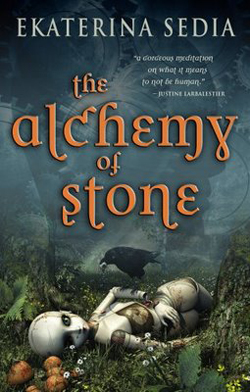
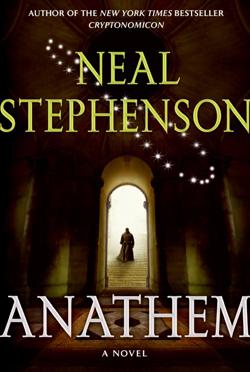
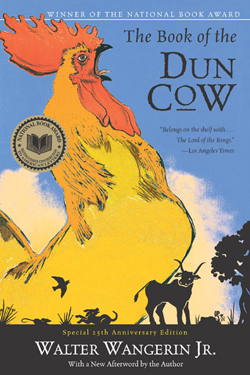
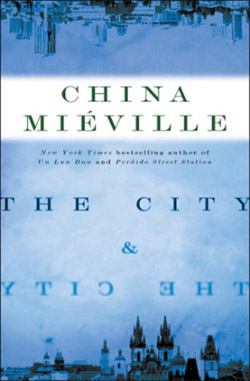




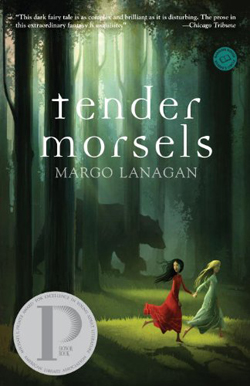
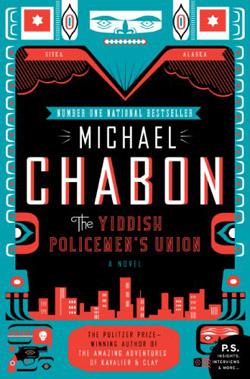
4 comments:
ooh yay !! more books to read! tender morsels looks good - i like the cover. after thinking that i saw the first line of what you wrote and totally agreed. not gonna bother reading your reviews until later before i go bookshop
i think your book recommendations are the only posts i read :P
beve: These aren't reviews; just books I'm looking to get. I haven't read ANY of them so don't hold me responsible if they aren't nice.
Hmm that's very interessting but frankly i have a hard time seeing it... wonder what others have to say..
Anonymous: what's interesting? what do you have a hard time seeing? there's no charge for the number of words you put in a comment, you know.
Post a Comment